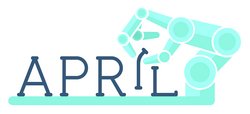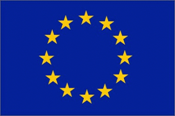APRIL
Multipurpose robotics for mAniPulation of defoRmable materIaLs in manufacturing processes

The APRIL project aims at prototyping low cost and agile market oriented multipurpose, and easy to repurpose, autonomous dexterous robots; which will manipulate, assemble or process different soft and flexible products/materials in a production line environment. This will enable new ways of automatization (semi- or fully-automatic tasks) in manufacturing lines that produce, assemble or handle different types of flexible or deformable materials (e.g., from pillows to delicate food products).
| Duration: | 01.04.2020 till 31.03.2024 |
| Donee: | German Research Center for Artificial Intelligence GmbH |
| Sponsor: | European Union |
| Grant number: | 870142 |
| Partner: |
Universidad Politécnica de Madrid |
| Application Field: | Logistics, Production and Consumer |
| Related Robots: |
UR5+10 Dual Arm System
|
Project details
To achieve this goal, APRIL will design and build robot prototypes optimized for processing soft and malleable materials in manufacturing environments; they will be validated and tested in the laboratory and in six different operational manufacturing environments and sectors (appliances, food, textiles, footwear, electronics and paper/passports) in five countries and in manufacturing industries of different sizes. These prototypes will be:
(1) be safe to use in the vicinity of unattended persons;
(2) be more skilled and competent in handling different types of soft products while controlling the degree of deformation;
(3) be better able to monitor any additional information of the product (colour, healthy condition of the food, etc.) during handling;
(4) be able to learn in new interactive environments; and
(5) be better able to move from line to line and from workstation to workstation as required
